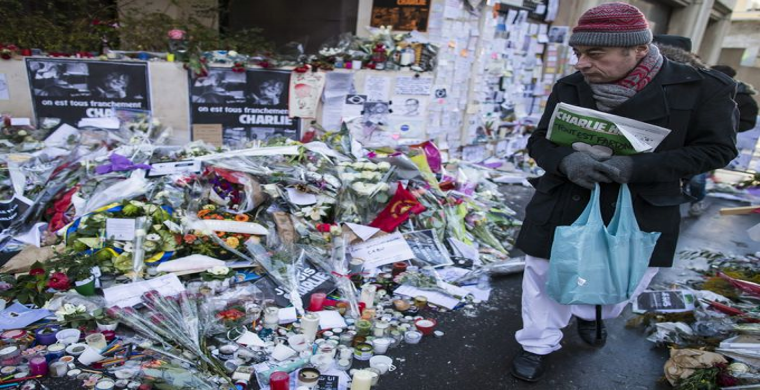So...were the Paris attacks really Islam or not?
by Abu Daoud
Special to VIRTUEONLINE
www.virtueonline.org
November 21, 2015
We're used to this by now. Muslims kill scores of people, and explain that they have done this because they are Muslims, because the Qur'an commands them to do so, and their authorities issue detailed legal arguments explaining why said acts were legitimate acts of struggle (in Arabic the word is jihad) against the unbelievers.
And then we get the response. But Muslims could never kill fellow Muslims!
No one mentions that according to Islamic State and Al Qaeda and friends any 'Muslim' who collaborates with the unbelievers is not actually a Muslim anymore.
And we get citations from the Qur'an, like "Whosoever kills a man...it is as if he killed the whole of mankind..." (Qur'an 5:32)
But then others note that the entire verse reads, "whoever slays a soul, unless it be for manslaughter or for mischief in the land, it is as though he slew all men..." In other words, if someone is spreading mischief, like criticizing the Prophet or his successor (which is what the word caliph means in Arabic), then well, it is ok to slay him.
So where is the truth?
Let me propose an analogy to the Christian faith.
Must Christians have regional elders (bishops) who have oversight over other elders? In other words, must church government be episcopal? Some people would say yes, that this is clearly taught in the Bible. But most, including many Anglicans, would say that while the episcopal form of church government is the ideal one, it is not clearly mandated in the New Testament. On the other hand, those who espouse a Congregationalist or Presbyterian vision for church government might say that their vision for church government is THE biblical vision. But others would be more flexible, saying that their vision for church government is superior, but not mandatory.
This is the best analogy we can find in Christianity for the question of the operations which were carried out in Paris. The people who carried out the operations would say that their vision for jihad is the one mandated in the Qur'an, and trust me that they have plenty of authoritative verses to back up their positions. Still other Muslims will opine, "Well, I wouldn't do that but what they did was certainly justified and rational." And then, still others would say, "What they did was absolutely against the Qur'an and the example of Muhammad, the ideal human being."
The question for us non-Muslims is, who is being true to the pattern and example of the founder of Islam? He was a man who owned a dozen or so swords and himself killed scores of men and enslaved women and girls. The historical sources of Islam clearly testify to all of this.
We must judge others by the same rule we judge ourselves. We are Christians insofar as we carry forward the practice and teaching of Jesus Christ, head of the Church. History reveals that groups that call themselves 'Christian' but do not, in fact, do this--well, they die out. (Witness the implosion of progressive mainline Christianity in the USA, for instance.) But other communities grow and flourish. Among other we might identify numerous global communities like the evangelicals, Pentecostals, and traditionalist Catholics.
And with this rule whereby we judge ourselves, we can judge others. Who is really carrying forward the heritage and example of Muhammad, the ideal human and the seal of the prophets?
The reasonable conclusion is that the jihad of Islamic State or Al Qaeda is one orthodox application of Islam, even if it is not considered as normative for all Muslims. Was Paris a legitimate act of jihad according to the Quran and the example of Muhammad? Are bishops normative for the governance of the Church?
file:///C:/Users/David/Downloads/Johnstone%20and%20Miller%20Global%20BMB%20Census%20ijrr11010.pdf
Abu Daoud is an Anglican missionary to the Muslim world and can be reached via independent.academia.edu/AbuDaoud or his blog,islamdom.blogspot.com














